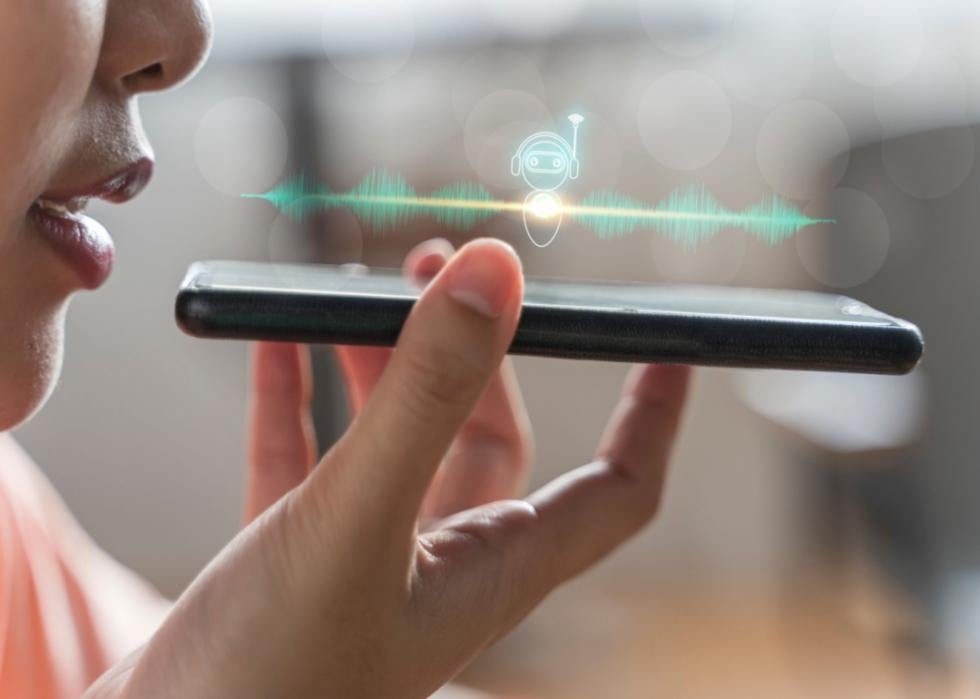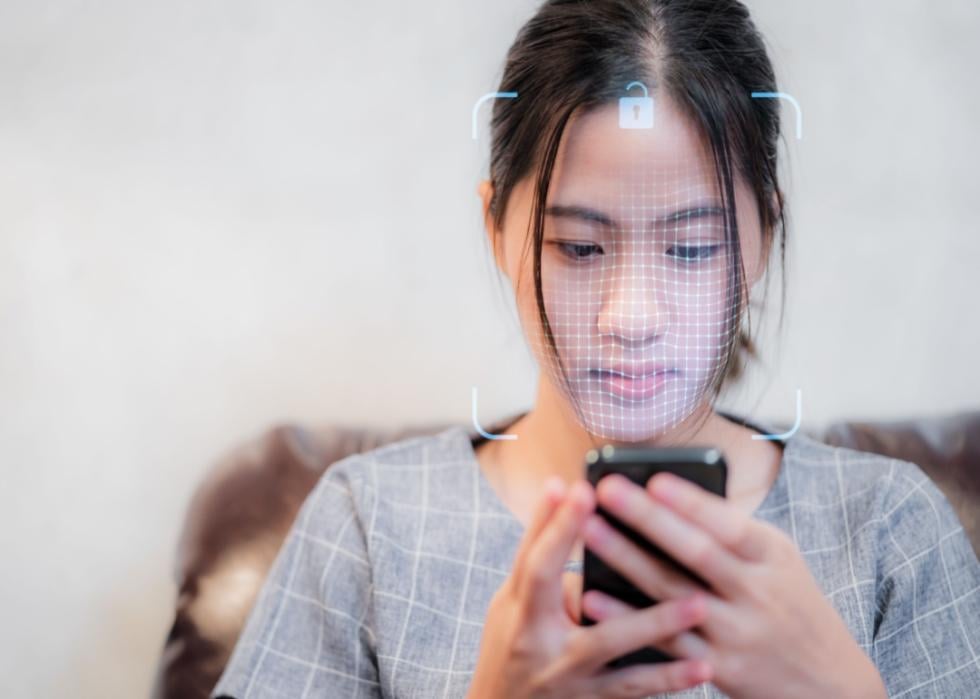
Is your phone actually listening to you? We fact-checked 5 surveillance myths.
Is your phone actually listening to you? We fact-checked 5 surveillance myths.
Mirrors that track workout reps, pillows that silence snores—smart technology is constantly evolving. Our phones are some of the smartest and most ubiquitous. By 2024, 9 in 10 Americans owned a smartphone, up from just 35% in 2011, according to Pew Research Center.
While these innovations offer convenience, they often come with a hidden cost: privacy.
The Federal Trade Commission warns that companies can now track online activities whenever users interact with internet-connected devices. Websites may use cookies to track someone even after they leave the site. Some apps allow advertisers to use a unique identifier to track a person's activity, and companies may be able to track activity on different devices, including phones and laptops, as long as they're connected to the internet. Online sources can amass details on everything from purchase history and social media activity to magazine subscriptions and even political affiliations.
Data brokers collect this information from online sources, sometimes without a user's knowledge. The FTC reports that this info can include purchase history, social media activity, magazine subscriptions, and even political affiliations. User profiles are then sold to businesses that target potential customers with eerily specific ads.
Experian, one of the largest data brokers in the United States, uses data about hundreds of millions of people's locations, demographics, purchasing habits, lifestyles, and interests to help marketers "gain granular insights into who your customers really are."
So it's no wonder some people believe their phones are "listening" to them—even if that's not exactly the case.
"When most people see unexpected ads, it's because they've been targeted based on huge lists of private information about them that was collected in other covert ways," an Electronic Frontier Foundation report found.
This practice has left many Americans uneasy. A 2023 Pew survey revealed that nearly 3 in 4 respondents felt they had "little to no control" over how companies use their data, and 67% said they "understand little to nothing" about how their personal information is handled.
To address these concerns, Stacker investigated five common fears about tech surveillance and separated fact from fiction.

Are my smart devices always listening to me?
Smart devices are not constantly listening to you, but there have been cases in which audio recordings have been filtered through human listeners.
In 2018, CBS conducted an investigation and found no evidence that smartphones eavesdrop on conversations. Later that year, Meta CEO Mark Zuckerberg testified during a Senate hearing that the company was not actively listening to users.
However, virtual assistants such as Google Assistant, Siri, and Alexa have recorded audio while activated, which humans later reviewed—though Google, Apple, and other companies reportedly stopped this practice in 2019.

Are people spying on me through my cameras?
Generally, people should be able to tell if their cameras or microphones are in use.
According to Microsoft, some hacking signs on laptops, for example, might include a flickering or illuminated camera indicator light, unfamiliar files, malware, or compromised security settings.
It's also important to read the fine print when activating an app or device.
"We always advise users to review the privacy permissions on their devices to ensure no apps are accessing important features like the camera, microphone, or location without their knowledge," an EFF spokesperson told Stacker, noting that people can do this on both Android and Apple devices.

Who has access to the data my devices collect?
Data collected by a user's device can be accessed by several sources, depending on the type of data and permissions granted. Apple, for example, says it uses personal data to "power our services, to process your transactions, to communicate with you, for security and fraud prevention, and to comply with law," among other purposes.
In December 2024, Apple agreed to pay $95 million to settle a lawsuit that alleged it sent data recorded by Siri without consent to third parties. Just over a week later, the company stated it never used Siri data for marketing or advertising purposes and "never sold it to anyone for any purpose."

Does searching in incognito mode protect against surveillance?
Surfing the internet in incognito or private mode keeps your device's browsing history secret, which can be helpful for searches on sensitive topics or when using a shared computer. However, it doesn't stop a user's internet service provider from tracking which websites they visit or seeing their location, according to the Mozilla Foundation.
To make it more difficult for data brokers to collect information, users can disable ad ID tracking on their devices or use a search engine like DuckDuckGo, which asserts, "We don't track you. Ever."

Can my biometric information be used against me?
Governments and companies increasingly use biometric data, including fingerprints, iris scans, and facial images, but it poses risks to consumers. The Federal Trade Commission warned that such data could reveal sensitive information and attract malicious actors.
States are taking a stand. In 2022, Texas Attorney General Ken Paxton filed a lawsuit against Meta, alleging it used facial geometry data and other biometrics without consent. The suit resulted in a $1.4 billion settlement in 2024—the first enforcement of the state's biometric data protection law. Illinois and California have also enacted laws that regulate the collection of biometric data and protect consumers' rights.
Story editing by Mike Taylor. Copy editing by Paris Close. Photo selection by Lacy Kerrick.



